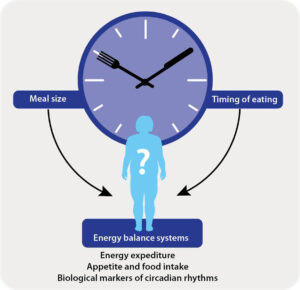Before you start thinking GLP-1 medications are some kind of magic pill, let’s pump the brakes a bit. While GLP-1 receptor agonists (GLP-1s for short) are exciting, they’re not meant to be used in isolation. The real magic happens when they’re combined with lifestyle changes, including a healthy diet and regular exercise. It’s like combining the best of all worlds to tackle obesity!
This is where the concept of a multidisciplinary team comes in. Imagine having a team of health professionals all working together to help you achieve your health goals. You’ve got doctors, nutritionists, athletic trainers, perhaps psychologists, all bringing their unique expertise to the table.
The Nutrition Perspective
As a nutritionist, I have seen everything that has come through in obesity and weight management over the past 3 decades. I have some fascinating insights on how GLP-1 RAs are changing the game. These medications can indeed significantly reduce appetite, which is great for weight loss, but it also means we all need to pay extra attention to ensuring people are getting all the nutrients they need.
We are also noticing that these medications can change people’s food preferences. Some folks find they’re less drawn to high-fat and sugary foods. It’s like your taste buds are getting a makeover. This can be a great opportunity to introduce healthier food choices and build lasting healthy habits.
The Psychologist’s View
Psychologists working in obesity management are both excited and cautious about GLP-1s. On the positive side, these medications can help reduce the stress and stigma associated with obesity. Imagine finally feeling in control of your appetite and seeing consistent progress – that can be a huge boost to mental wellbeing!
However, psychologists also remind us that obesity is complex, and often tied to emotional and behavioral factors. While GLP-1s can help with the physical aspect, it’s still important to address the psychological side of eating.
Challenges and Considerations
It wouldn’t be fair to talk about all the positives without mentioning some of the challenges. Like any medication, GLP-1s can have side effects. The most common ones are gastrointestinal, like nausea or changes in bowel habits. But don’t worry – these often improve over time, and there are strategies to manage them. I have helped countless people deal with gastrointestinal issues and know what works when you really need to get over these symptoms.
There’s also the question of long-term use. Obesity is a chronic condition, and we’re still learning about the effects of using these medications over many years.
Another consideration is muscle mass. When someone loses weight, they usually lose some muscle along with fat. With GLP-1s, we need to pay extra attention to maintaining muscle mass through proper nutrition and exercise.
The Future is Bright
Despite these challenges, the future of obesity management looks brighter than ever. Researchers are already working on new combinations of gut hormones that could be even more effective. It’s like we’re entering a new frontier in medical science!
But perhaps the most exciting aspect is how these developments are changing the conversation around obesity. We’re moving away from simplistic “eat less, move more” advice and recognizing obesity as the complex, chronic condition it is. This shift in perspective is opening doors to more comprehensive, compassionate care.
Moving Forward
It’s clear that GLP-1 receptor agonists have ushered in a new era in obesity management. They’re not a magic bullet, but when combined with proper eating habits, nutritional considerations, and lifestyle modifications, they offer real hope for effective, long-term weight management.
Remember, every body is different, and what works for one person might not work for another. If you’re considering treatment for obesity, it’s important to discuss all your options with your healthcare team. They can help you find the approach that’s right for you.
Keep in mind, the journey to better health is a marathon, not a sprint. But with these exciting new tools in our toolkit, we’re better equipped than ever to tackle the challenge of obesity. So here’s to a healthier, happier future for all! Keep smiling, keep moving, and remember – your health is worth celebrating!
Additional Reading















